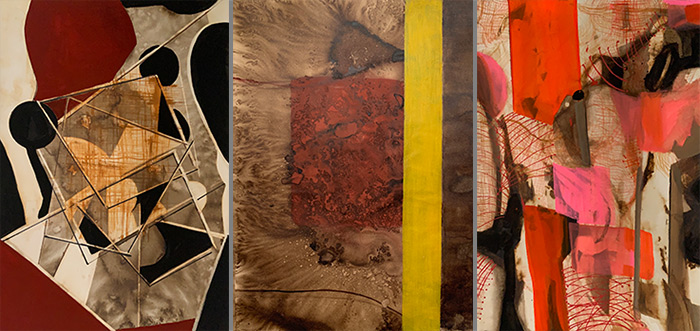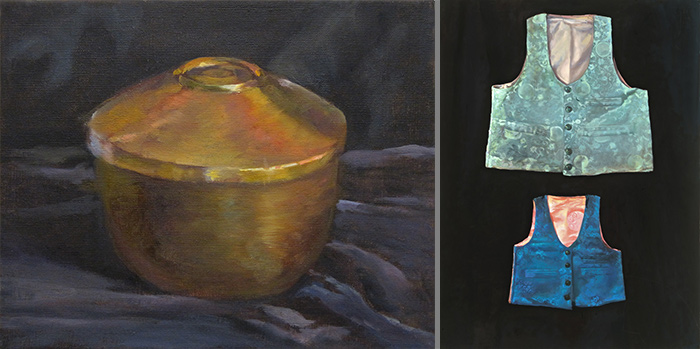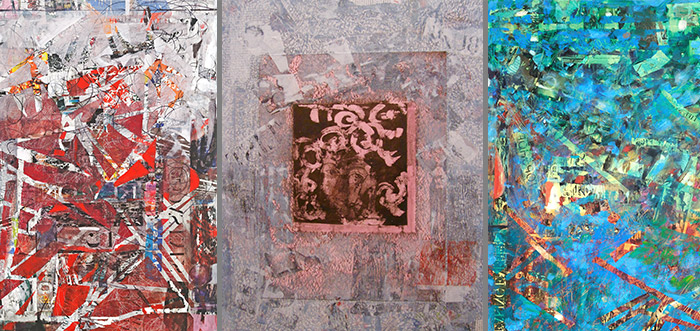
The Present and the Past series is an allegorical work inspired by my visit to Seoul, South Korea and Kyoto, Japan, two cities that embody the bustling present and the ancient past. My personal and cultural journey is
reflected in the work.
Both cultures are rich in traditional aesthetics. The differences of the past and the similarities of the present are represented by simple shapes with
an earthy essence.
To create a background reminiscent of wood-fired ceramic bowls, I employed black walnut ink created from the tannins of trees near our home in upstate New York. Today the bowls are reverently used for tea ceremonies in Japan; they were once commonly used as rice bowls
in Korea.
The Asian cities are a melting pot of contemporary and traditional motifs. The rich hues of traditional Korean hanboks and Japanese kimonos are combined with neon tones that represent today's high technology.
The colorful trompe l’oeil lines and circles recall the familiar and fragile themes of the past and the present that I experienced in
these timeless cities.

Jesa, a Korean traditional ceremony performed by the eldest son to honor his ancestors. The ritual is observed on the anniversary of the ancestor's death is referred to as gijesa. Charye are memorials celebrated during Seollal, the Korean Lunar New Year, and Chusok, the Harvest Moon Festival.
The ceremonies present a jesa table with pageantry of traditional dishes: soups, fish, vegetables, fruits, rice cakes and rice wine thoughtfully chosen, prepared, and placed in a proper ritual order. Behind the table hangs jibong, a calligraphy of the deceased names with prayers and greetings. From the eldest to the youngest male family member, all pay respect with bows.
The ritual ends with all the male members taking two final bows together sending the spirits on their way. The jibong is set on fire and the table is quickly cleared. The entire family comes together to share the feast, feeling once again blessed with good fortunes to come. This moment is known as umbok. This was true with our family living in the United States. We didn't celebrate any holidays growing up, except for jesa, which was always revered and honored. It was our parents' bond to Korea and ours as well.
On our father's first anniversary of his death our mother called to say, "Buy some special sweets for your father." Without any second thoughts nor any hesitations, we all set up a sacred place in our homes for our father's spirit to visit us that evening.


